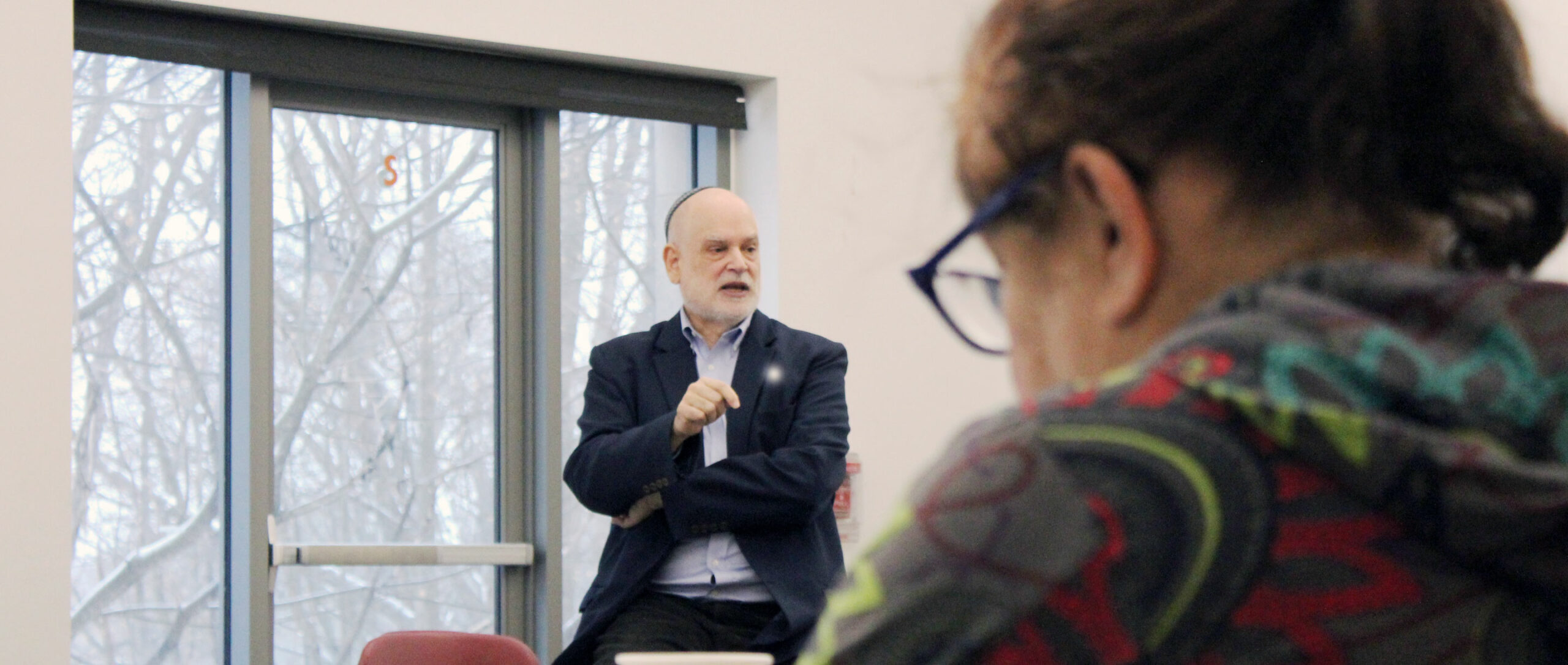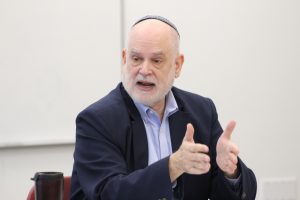Community Blog Me’ah: Where Teachers Are Learners

Me’ah students are eager scholars. Whatever prior experience they do or don’t have with Jewish texts and history, everyone is a reader, eager to learn and grapple with the sources. In my Me’ah classroom, the teacher is also a learner, and learning moves in multiple directions.
In each class, starting from week one, I set aside time for the students to discuss a primary source or sources in hevruta, small groups, usually of three students. Students read the text aloud, stopping to ask questions and offer insights. My role during hevruta time is to stand back and give the students the opportunity to appreciate that they are empowered readers and commentators. In this way, expertise is democratized and students can respond to the text from their own experiences and prior learning. Whether or not the students have prior experience with Bible, Talmud, Midrash or Modern Philosophy, everyone finds new perspectives and asks generative questions. As a result every class has its surprises, and new insights for me to take home. As class progresses, I answer questions and offer my expertise to contextualize and historicize the materials we study. The Me’ah classroom is always lively.
Years ago, when I left the college campus for my first pulpit, I made a personal commitment to keep my teaching fresh and current by staying alert to new scholarship and finding opportunities to teach each year on new topics. First at the Reconstructionist Rabbinical College and later at Hebrew College and its Me’ah program, I have been blessed to be able to keep my promise to myself. I have taught Biblical, Rabbinic and Modern semesters of Me’ah Classic. This spring, I will be offering a Me’ah Classic and Me’ah Select class on Modern Judaism/Modern Jewish Thought that take a new approach to new subject matter. My emphasis in the class will be on primary sources and teaching mostly works that have achieved classic status. When possible, we will be reading whole works. I will be teaching the writings of Spinoza, Marx and Freud as Jewish thinkers, and give new context to the fiction of Mary Antin, Philip Roth and Elie Wiesel. Social thinker Richard Rubinstein and liturgist Marcia Falk exemplify how the American Jewish experience reshaped classical Jewish thinking and practice. The class will try to replicate the teaching style I developed in college Humanities (“great books”) courses decades ago.
 This year I offered my third Me’ah Classic Bible course. The classroom experience has changed in each iteration. This year, I find myself emphasizing the afterlife of the Biblical narrative in Judaism and popular culture. Recently we read the birth story of Moses as emblematic of the story of the birth of the hero in Western literature. We explored how the story of the hero’s birth has impacted everything from movie Westerns to the self-presentation of politicians as they describe their early years. One foot in the Bible, one foot in our time. In many ways, ME’AH classic is an archaeology of the present, an excavation that explains the world we live in today.
This year I offered my third Me’ah Classic Bible course. The classroom experience has changed in each iteration. This year, I find myself emphasizing the afterlife of the Biblical narrative in Judaism and popular culture. Recently we read the birth story of Moses as emblematic of the story of the birth of the hero in Western literature. We explored how the story of the hero’s birth has impacted everything from movie Westerns to the self-presentation of politicians as they describe their early years. One foot in the Bible, one foot in our time. In many ways, ME’AH classic is an archaeology of the present, an excavation that explains the world we live in today.
I am grateful for the opportunity to be a Me’ah instructor, to have the fellowship of the staff, and my fellow teachers, and most of all the many active and engaged learners who sign up for our courses. ME’AH is the perfect place to teach and learn, to inspire and be inspired.
Rabbi Leonard Gordon, D. Min. is an instructor in Hebrew College’s Me’ah program. Me’ah is one of Hebrew College’s many Community Learning programs for all ages, stages, and backgrounds.

